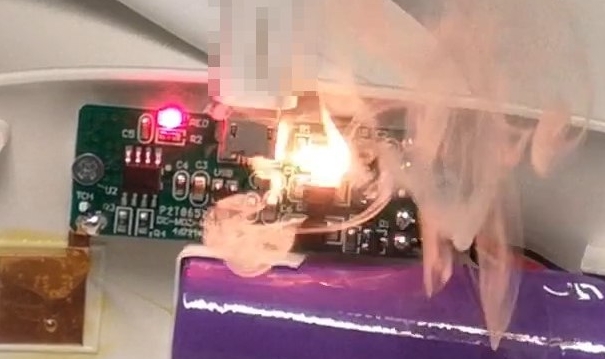
- Chinese researchers have found a vulnerability affecting fast-charging devices.
- Dubbed BadPower, the vulnerability corrupts the firmware of fast chargers.
- This can lead to the destruction of connected devices.
Fast charging is fast becoming commonplace across smartphones and other devices. As wattage and voltage increases, charging times decrease, making this technology a must-have for those on the go. But while the convenience of fast charging is clear, the technology can also be used maliciously.
Detailed by Tencent’s Xuanwu Lab (via ZDNet), a vulnerability called BadPower can modify the firmware of some fast chargers.
BadPower corrupts a fast charger and effectively stops its chip’s firmware and the charging device from agreeing on a set voltage. Some fast chargers can push 20 volts, but some devices can only safely accept 5V. By overloading a device with more voltage than it can handle, researchers found that they could cause some devices to burst into flames.

While researchers used a “special device disguised as a mobile phone� to corrupt a fast charger’s firmware, researchers believe that phones, laptops, and other devices infected with the requisite “malicious programs� can be used in a similar way. BadPower may not seem as invasive as data-stealing malware or ransomware, but it does demonstrate how one infected device or one corrupted fast charger could physically destroy a number of others.
Read: Fastest charging cables — Which one is best for you?
The researchers also found that at least 18 of the 35 fast chargers they tested could be vulnerable to BadPower. Of those 18, 11 could be corrupted using “digital terminals� or phones and other devices that support fast charging. They did not detail which companies’ chargers were affected.
To mitigate the risks, researchers suggest manufacturers add additional fuses to devices that support lower voltage fast charging. For users, they warn against easily dishing out your phone charger or power bank to others.
The full report, including a dramatic video demo of the exploit, can be found here. In the meantime, be sure to catch up on the latest fast charging and battery technology news below.

